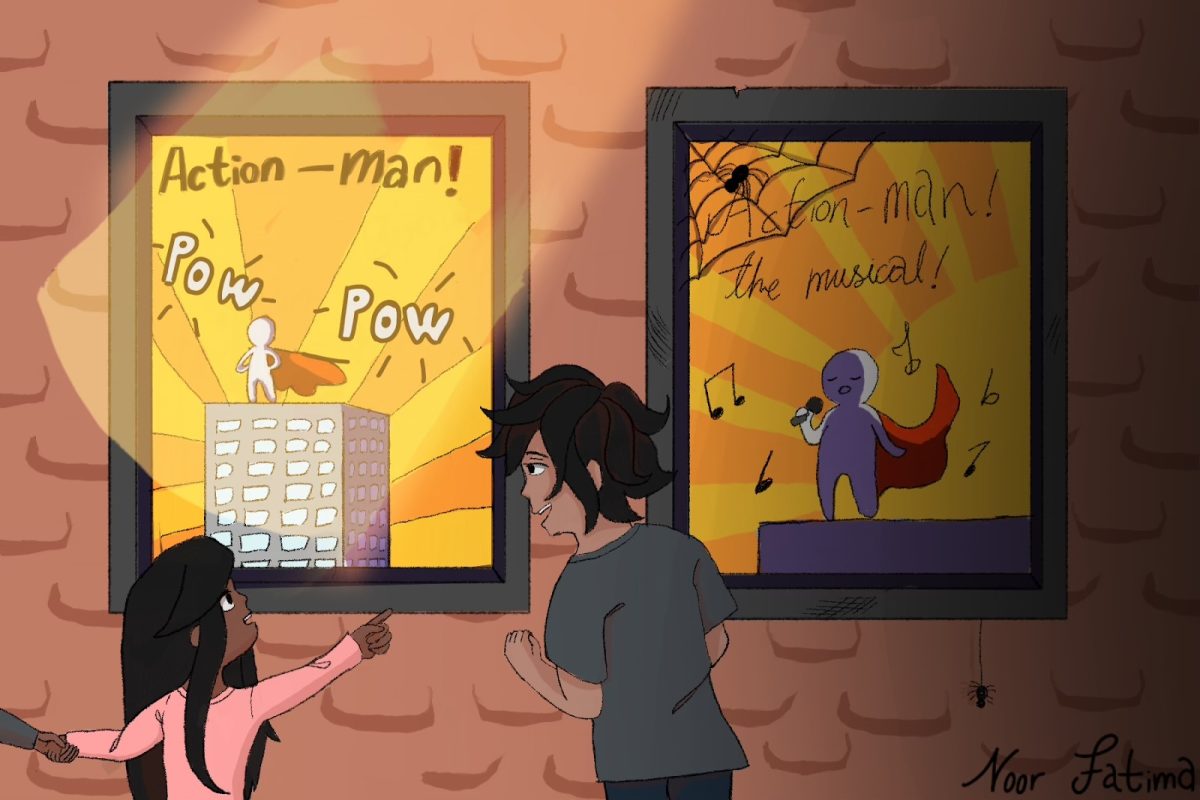Since 2010, around 26.9% of movie musicals have flopped at the box office. So if there is a one in four chance that it is going to lose money, why does Hollywood keep making them?
To understand why movie musicals are still being made, we have to take a look at why they were so successful in the first place.
During the Great Depression and World War II, people were often looking for an escape, which was found through musicals and the fantasy of them.
Hollywood enjoyed the opportunities to show off the talents of many stars. When audiences saw a big name in a film, such as Judy Garland or Gene Kelly, it was almost guaranteed success at the box office because people’s sole means of watching their favorite actors was through the theater.
But what goes up must go down after all. After the warfare started to subside, people weren’t looking for an escape. Furthermore, the rock music industry dominated album sales. People weren’t buying the movie musical soundtracks like they were before.
When Hollywood continuously pushes out movie musicals, people start to get sick of them. Between 1929-1959, 1,278 musical films were released, an average 42.6 per year.
People preferred to watch movies that capture their attention and made them feel like they just became a part of the story. When people immerse themselves into the film, it removes them from the reality of the movie when people start to sing.
Audiences view acting as a realistic art form but the caricature acting in the early 20th century was not meant to be realistic, it was meant to be an escape from the world. When asking people why they do not enjoy musicals even if the music is good, the typical answer is “because people do not burst out into song in real life.”
That is not to say that there have not been successful movie musicals since 1960. Thirteen of the IMDB Top 250 movies are musicals, 10 of which were released after 1960. Eleven have won the Academy Award for Best Picture, six of which were released after 1960.
However, four of the six musicals were released in the 1960s and the most recent win was Chicago (2002). This may be due to not as many movie musicals are being made. Between 1960 and today, 911 musical films have been made, an average 14.2 per year.
Since 1960, it is not uncommon to see a movie musical not do well at the box office. But there have been exceptions, with original films recently like Pitch Perfect 1-3 (2012, 2015, 2017) La La Land (2016) and The Greatest Showman (2017) doing well at the box office.
Hollywood keeps making movie musicals even if they aren’t doing very well because they have seen that it can be an easy way to make money when they adapt Broadway classics or classics from the golden age.
They know Broadway adaptations will bring in a certain group of people, fans of musical theater and/or those classic films and attract an audience to make money at the box office. When Hollywood makes Broadway adaptations, there is already a plot, a script and music, all they need to do is put it on the screen.
Unless it is an adaptation or remake of a famous musical like West Side Story (2021) or Wicked (2024), movie musicals attract audiences who would not typically go and see musicals by hiding that detail in the trailers. The most recent example of this being Mean Girls (2024) which did not use any of the songs from the soundtrack in the trailer.
It is obvious that movie musicals are not as successful as they once were. But with the way the film industry is responding to them, it does not look like there is a golden age anywhere in the future. Hollywood is likely still going to keep making them and I know that as a fan of musical theater, I will be front row watching them when they do.
Follow @CHSCampusNews on X.











